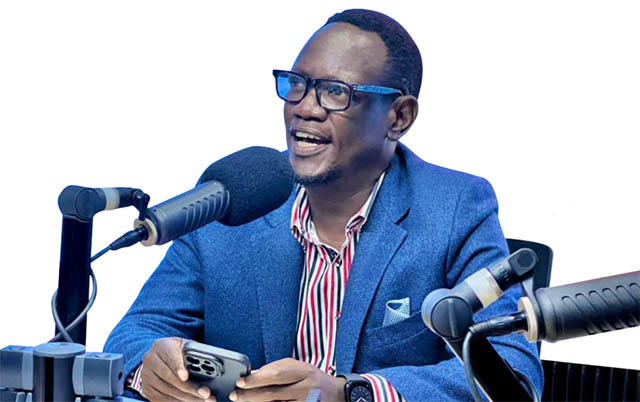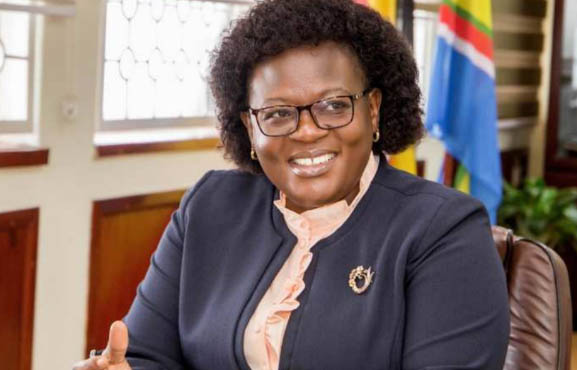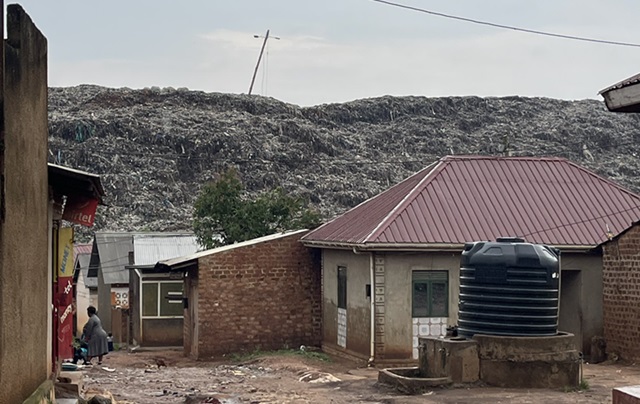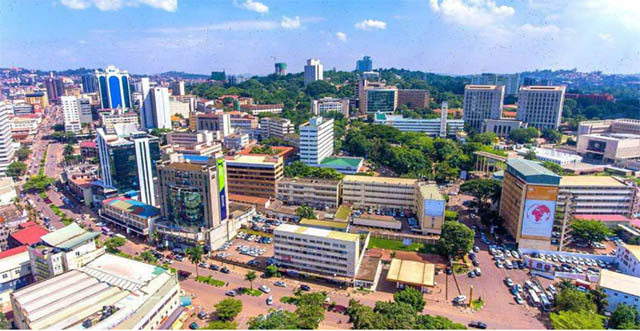
It’s the KCCA structure, stupid! Why management can’t change city without change in ‘political authority’
COVER STORY | IAN KATUSIIME | Former Vision Group CEO Robert Kabushenga has led the pack of corporate gurus gunning for the position of Kampala Capital City Authority (KCCA) executive director. Other known applicants are interim executive director Frank Rusa, former National Social Security Fund (NSSF) MD Richard Byarugaba, former executive director of Financial Intelligence Authority Sydney Asubo, and former legal counsel for Uganda National Roads Authority (UNRA) Marvin Baryaruha.
A total of 39 people are said to have applied for the top job at KCCA. Also advertised were the positions of deputy executive director and director of public health. These position have also attracted equally high numbers of ‘distinguished’ applicants.
Considering the rate at which KCCA executives are fired for incompetence, the lucrative pay packages appear to be the main attraction for the applicants. The appetite has also seen some people apply for both the positions of executive director and deputy. This despite commentators waxing lyrical about the catalogue of issues surrounding the top office at City Hall that would make the job unattractive.
First is how the job is largely a political rather a technocratic position considering the fights between the government leaning KCCA administrative structure comprising political appointees from President Yoweri Museveni’s office, ruling party apparatchiks, public service bureaucrats and the political wing headed by Kampala Lord Mayor Erias Lukwago who is a well-known opposition political figure.
Many commentators have made the case for how the position of executive director has become a mere pawn in the scheme of controlling the politics of Kampala.
The beeline for the job that attracts a salary of over Shs40m per month has also sparked debate on the issue of retirement. Middle aged Ugandans are grumbling that people in “retirement age” could snap up their opportunities leaving those who have been waiting in the wings to settle for crumbs.
Kabushenga is in his mid-fifties while Byarugaba clocked the retirement age of 60—which is why he was on contract at his former job at the National Social Security Fund (NSSF)— where he was hounded out last year. The two have been widely criticized for talking a big game about retirement only to jump at the latest offer of a vacancy in government.

Although Kabushenga and Byarugaba who are well known executives in Uganda may not stand a chance, their bids also started a discussion on what it means for the position going to a management guru of their ilk.
“Even if you bring the best brain to KCCA and give them the job, they will be as good as the garbage of Kiteezi,” says an infrastructure expert who follows KCCA but preferred to remain anonymous in an interview with The Independent.
The “Kiteezi” quip is in reference to the KCCA garbage dumping site located in the Kiteezi suburb of Kampala City in neighboring Wakiso District where garbage heaps caved-in and buried and killed an estimated 30 people in August.
The incident displaced many more people and left Kampala City and its environs without a viable site to dump garbage.
Following the incident, President Museveni on September 24 sacked three top KCCA top officials: Dorothy Kisaka, the Executive Director; David
Luyimbazi, the Deputy Executive Director, and Dr. Daniel Okello, the Director of Public Health.
The President in statement said he was acting on the report released by the Inspector General of Government (IGG) that accused the officials of severe oversight and negligence. The trio was arrested and detained on Oct.17 before being sent of remand to prison on Oct. 18.
Kisaka, Luyimbazi, and Okello are remanded to Luzira Prison on charges of manslaughter over what many critics termed as a clear case of negligence and dereliction of duty.
The three immediate former bosses at KCCA were arrested and interrogated by detectives following a report by the Inspector General of Government that pinned them over negligence. President Museveni sacked them subsequently.
An angry public however is still demanding for accountability terming the trio’s dismissal as a scapegoat. They want the heads of the two line ministers; Minsa Kabanda and Kabuye Kyofatogabye on the chopping board. Many people are saying the President is equally culpable.
Intense lobbying on
Two days after their dismissal, President Museveni on Sept.26 appointed Frank Rusa Nyakaana to be the acting Executive Director. Nyakaana had been the director for legal affairs at KCCA.
On Oct.18 KCCA advertised the vacancies for Executive Director and Deputy Executive Director sparking the scramble for the jobs among wannabe CEOs.
An official at KCCA told The Independent that the decision to advertise the job is an indicator of the scramble for the job.

The former occupant, Dorothy Kisaka, was handpicked for the role “out of the blue” by President Museveni, the official said. She had previously worked at the NRM secretariat.
“It says a lot about what the president thinks about the job,” the source said, ““The government is not trying to strengthen institutions. We know behind the scenes, there is a lot of lobbying and influence peddling. “The strong presidency that lords their power over institutions weakens institutions in government,” the source said.
According to them, the lack of a clear delineation between the powers, roles, and functions of KCCA ED and the Lord Mayor is the main impediment to the operations of the city authority, including on issues like the Kiteezi disaster which had been flagged and could have been avoided.
The landfill was flagged as early as 2017 for its imminent collapse and danger to the surrounding population. KCCA’s first ED, Jennifer Musisi, was in office and commentators say she bears some responsibility since she had been on the job for six years.
The KCCA official said: “Who is supposed to do what? Where does the buck stop? Who determines where the next road project in Kampala should be, who is supposed to mobilise for resources? Lukwago cannot get out. He keeps coming back.”
Lukwago has been Lord Mayor since 2011 and has battled all KCCA Executives over the running of the city. Many observers of KCCA politics are betting on him to stand for re-election in 2026 in a contest where he never faces a serious challenge.
The source stressed that the lack of structure at KCCA essentially spells doom for anyone who will replace Kisaka.
“They will not do much,” the official said.

Ronald Balimwezo, MP for Nakawa East and a former division mayor for the same area was equally concerned about the different and conflicting layers of authority at KCCA.
“There is the President, the Minister for Kampala, the assistant Ministers, the Public Service Permanent Secretary, the Lord Mayor, the Resident City Commissioners, and the councilors who are all struggling for opportunities, Balimwezo told The Independent.
According to him, any KCCA ED hoping to succeed must understand these many power centres of the city. He the powers centres are packed with people wo act with a lot of impunity.
“Everyone wants to give jobs to their people,” he told The Independent, “And they all have power – including the wanainchi (ordinary people).”
Balimwezo says that the job needs a lot of compromise and this is despite the load of work the KCCA supremo has to undertake.
“The political challenges mean you have to compromise as you enforce laws. You cannot just declare that you want boda bodas out of the city,” he added.
He says that acting ED Frank Rusa has learnt something from the one month he has been on hot seat.
“He has been at KCCA. He knows the dynamics and he has seen the mistakes of his predecessors,” Balimwezo said, “Having served as IPOD secretary, maybe they should give him a chance.”
Balimwezo decries the level of political interference in the job. He says even the first KCCA ED, Jennifer Musisi, suffered a lot of political interference despite the level of how she was empowered by President Yoweri Museveni.
Genesis of KCCA
The origin of KCCA is rooted in the government’s desire to control Kampala, an opposition stronghold. It goes back eighteen years ago or even longer.
In 2006, a young lawyer, Erias Lukwago, won the election of MP for Kampala Central by defeating an NRM candidate, Francis Edward Babu. It coincided with the election of Nasser Ntege Ssebagala as Mayor. Both Lukwago and Ssebagala were members of the Democratic Party, the oldest political party in Uganda.

The election sent shivers down the spines of the NRM as Uganda had just adopted the multiparty dispensation in a 2005 referendum that discarded the Movement single party system which the ruling party had used to shutter the political arena.
Erias Lukwago would go on to succeed Ssebagala as Lord Mayor in the reorganised Kampala’s political structure that created KCCA. This meant that the capital, Kampala, could soon become ground zero for political organising.
It wasn’t long before the government was drafting a Bill for the creation of a city authority with the pretext of transforming the city but whose overarching goal was reining in the political opposition.
When Musisi was appointed in April 2011, she and Lukwago got off on the wrong foot with public clashes. The two faced off in court battles, at City Hall, and in parliament. Each camp was backed by their respective supporters and political power base.
Musisi gave Ugandans a taste of her power when she evicted Gen David Sejusa from a KCCA house he was illegally occupying. Sejusa is a hero of the bush-war that brought Museveni and had up to that point appeared untouchable. Musisi also Lukwago impeached as Lord Mayor in 2013 although court reinstated him.
When President Museveni laid the defeat of NRM in Kampala squarely at the feet of the KCCA ED after the 2016 elections, she offered her resignation and the relationships between the two never recovered until she threw in the towel two years later.
Musisi resigned in 2018 after years of frustration and disagreements with the appointing authority. She was criticized for running a high handed regime and for trampling on the downtrodden with her reforms.
The coveted position of KCCA ED has elicited a lot of commentary based off on the applicants alone. The list of applicants leaked on social media as the former occupants of the positions;
As the search goes on for replacements at KCCA, there has also been the issue of the same faces being recycled for lucrative positions in Uganda. Luyimbazi is a former executive director at UNRA who was ousted during the cleanup instituted by a judicial commission of inquiry headed by Justice Catherine Bamugemereire.
The tragedy has arguably been KCCA’s worst failing. The institution has been plagued by an endemic lack of planning, disaster management and a glaring absence of public health guidelines.
At his first press conference, acting KCCA boss Rusa laid out a six point plan for managing KCCA. It entailed a smart city agenda, fixing potholes, waste management, clearing salary arrears, city beautification and physical planning.
*****
RELATED STORY
 The Independent Uganda: You get the Truth we Pay the Price
The Independent Uganda: You get the Truth we Pay the Price


